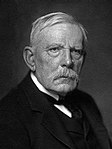1912 German federal election
| |||||||||||||||||||||||||||||||||||||||||||||||||||||||||||||||||||||||||||||||||||||||||||||
All 397 seats in the Reichstag 199 seats needed for a majority | |||||||||||||||||||||||||||||||||||||||||||||||||||||||||||||||||||||||||||||||||||||||||||||
|---|---|---|---|---|---|---|---|---|---|---|---|---|---|---|---|---|---|---|---|---|---|---|---|---|---|---|---|---|---|---|---|---|---|---|---|---|---|---|---|---|---|---|---|---|---|---|---|---|---|---|---|---|---|---|---|---|---|---|---|---|---|---|---|---|---|---|---|---|---|---|---|---|---|---|---|---|---|---|---|---|---|---|---|---|---|---|---|---|---|---|---|---|---|
| Turnout | 84.9% | ||||||||||||||||||||||||||||||||||||||||||||||||||||||||||||||||||||||||||||||||||||||||||||
| |||||||||||||||||||||||||||||||||||||||||||||||||||||||||||||||||||||||||||||||||||||||||||||
 Results of the 1912 Reichstag election. | |||||||||||||||||||||||||||||||||||||||||||||||||||||||||||||||||||||||||||||||||||||||||||||
| |||||||||||||||||||||||||||||||||||||||||||||||||||||||||||||||||||||||||||||||||||||||||||||
Germany |
|---|
 |
This article is part of a series on the politics and government of Germany |
Constitution (Basic Law)
|
Executive
|
Legislature
|
Judiciary
|
Administrative divisions
|
Elections
|
Foreign relations |
|
Federal elections were held in Germany on 12 January 1912.[2] Although the Social Democratic Party (SPD) had received the most votes in every election since 1890, they had never won the most seats, and in the 1907 elections they had won fewer than half the seats of the Centre Party despite receiving over a million more votes.[3] However, this election saw the party win more than double the number of votes of the second-placed Centre Party and become the largest party, winning 110 of the 397 seats.[4]
The party breakdown in the newly elected Reichstag made possible a majority coalition of groups hostile or ambivalent to the ruling elites of the German Empire – the Social Democrats, the Centre Party, and the left-liberal Progressives between them commanded a majority. The effects of this possibility would be seen with the vote of no confidence in the government of Theobald von Bethmann Hollweg over the Saverne Affair in 1913 and the Reichstag Peace Resolution of 1917. Nonetheless, the Centre and the Progressives were unwilling to act consistently in opposition, leaving the government largely free to do as it wished.
Some historians, such as Fritz Fischer have theorized that the First World War was partially a result of the strategy of the conservative Prussian Junkers to deal with this result.[5] In an attempt to increase support for conservative parties and policies, to distract the population from the SPD they hoped to drum up patriotism in an external conflict with Russia or another east European state such as Serbia.
Georges Weill, the SPD candidate who won Metz in this election, defected to France at the start of World War I.
Results
| Party | Votes[a] | % | Seats | +/– |
|---|---|---|---|---|
| Social Democratic Party | 4,250,400 | 34.8 | 110 | +67 |
| Centre Party | 1,996,800 | 16.4 | 91 | −14 |
| National Liberal Party | 1,662,700 | 13.6 | 45 | −9 |
| Progressive People's Party | 1,497,000 | 12.3 | 42 | −7 |
| German Conservative Party | 1,126,300 | 9.2 | 43 | −17 |
| Polish Party | 441,600 | 3.6 | 18 | −2 |
| German Reich Party | 367,200 | 3.0 | 14 | −10 |
| Economic Union | 304,600 | 2.5 | 10 | +5 |
| Alsace-Lorraine Party | 162,000 | 1.3 | 9 | +2 |
| German-Hanoverian Party | 84,600 | 0.8 | 5 | +4 |
| German Reform Party | 51,900 | 0.4 | 3 | New |
| Danish Party | 17,000 | 0.1 | 1 | 0 |
| German Agrarian League | 245,100 | 2.0 | 2 | −6 |
| Bavarian Peasants' League | 2 | +1 | ||
| Others | 2 | −1 | ||
| Invalid/blank votes | 53,100 | – | – | – |
| Total | 12,260,600 | 100 | 397 | 0 |
| Registered voters/turnout | 13,352,900 | 84.9 | – | – |
| Source: Nohlen & Stöver, DGDB | ||||
a Figures for votes are rounded.[2]
References
^ Merger of the Free-minded People's Party (28 seats), Free-minded Union (14), and German People's Party (7).
^ ab Dieter Nohlen & Philip Stöver (2010) Elections in Europe: A data handbook, p762 .mw-parser-output cite.citationfont-style:inherit.mw-parser-output qquotes:"""""""'""'".mw-parser-output code.cs1-codecolor:inherit;background:inherit;border:inherit;padding:inherit.mw-parser-output .cs1-lock-free abackground:url("//upload.wikimedia.org/wikipedia/commons/thumb/6/65/Lock-green.svg/9px-Lock-green.svg.png")no-repeat;background-position:right .1em center.mw-parser-output .cs1-lock-limited a,.mw-parser-output .cs1-lock-registration abackground:url("//upload.wikimedia.org/wikipedia/commons/thumb/d/d6/Lock-gray-alt-2.svg/9px-Lock-gray-alt-2.svg.png")no-repeat;background-position:right .1em center.mw-parser-output .cs1-lock-subscription abackground:url("//upload.wikimedia.org/wikipedia/commons/thumb/a/aa/Lock-red-alt-2.svg/9px-Lock-red-alt-2.svg.png")no-repeat;background-position:right .1em center.mw-parser-output .cs1-subscription,.mw-parser-output .cs1-registrationcolor:#555.mw-parser-output .cs1-subscription span,.mw-parser-output .cs1-registration spanborder-bottom:1px dotted;cursor:help.mw-parser-output .cs1-hidden-errordisplay:none;font-size:100%.mw-parser-output .cs1-visible-errorfont-size:100%.mw-parser-output .cs1-subscription,.mw-parser-output .cs1-registration,.mw-parser-output .cs1-formatfont-size:95%.mw-parser-output .cs1-kern-left,.mw-parser-output .cs1-kern-wl-leftpadding-left:0.2em.mw-parser-output .cs1-kern-right,.mw-parser-output .cs1-kern-wl-rightpadding-right:0.2em
ISBN 978-3-8329-5609-7
^ Nohlen & Stöver, pp774-789
^ Nohlen & Stöver, p789
^ Fischer, Fritz (1961). Germany's Aims in the First World War. W. W. Norton & Company. ISBN 0-393-09798-6.






